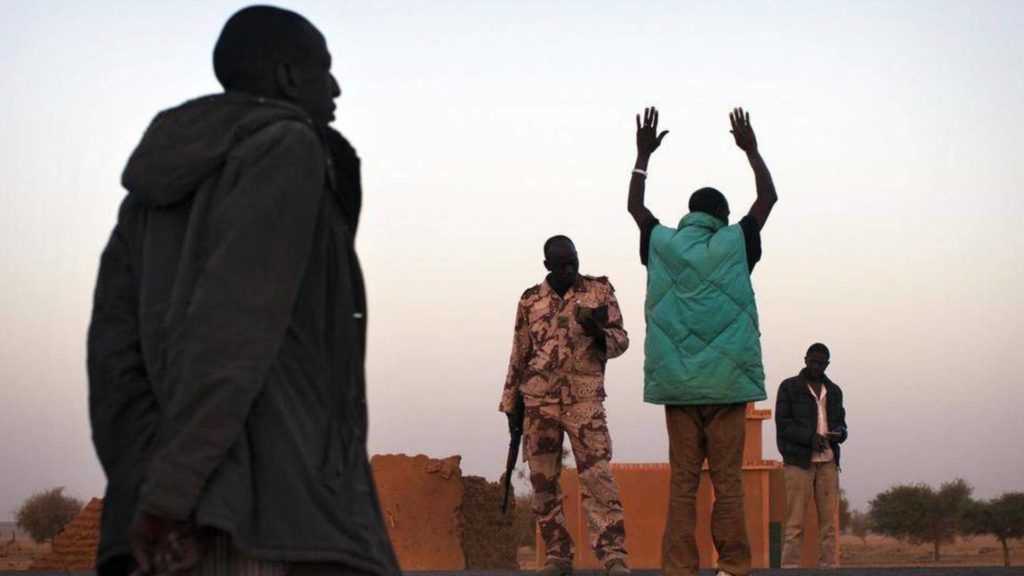While foreign powers with France at their head continue their journey across Africa, where are the African countries ?
The release of hostages – two French, an American and a South Korean – last month in Burkina Faso, as well as the death of six people killed in an attack against a Catholic church in northern Burkina Faso confirm if needed be that the Sahel is plunging into a deeper chaos.
Six years have passed since Operation Serval in northern Mali, neither this, nor Barkhane nor the G5 Sahel have so far managed to defeat or even contain terrorism in the region. On the contrary, hostage taking and the recurrent attacks remind us that terrorist groups are not only well rooted, but that no Sahelian country – and Africa – is today immune or spared from terrorism. Terrorism continues to spread eastwards in Niger -28 Nigerian soldiers were also killed in an ambush this May-, in Burkina Faso and elsewhere, but also further South, in the Gulf of Guinea, underlining thus the limits of counterterrorism strategies. Bearing in mind this chaotic situation, the growing presence of foreign troops in the region with French forces at the forefront, cannot alone explain such material, financial and human investments.
The G5 Sahel irrelevance
The G5 Sahel (Mauritania, Mali, Burkina Faso, Niger and Chad) group is supposed to eventually take over from Barkhane’s forces in the fight against terrorism. This is the official version. However, beyond the indisputable inability of its military forces to defeat the terrorist groups, the G5 Sahel ignores de facto the north-south and interregional dynamics, weakening in turn the security mechanisms already in place such as the Nouakchott Process – which includes eleven States ranging from the Mediterranean to the Gulf of Guinea-, conceived and conceptualised in 2013 by the Peace and Security Council (PSC) of the African Union (AU) to address the security crisis in this region as a whole. In doing so, it not only delineates the geostrategic issue of the Sahelo-Saharan region, but also underlines the interdependence of all concerned States, from North to West Africa.
A fierce strategic military battle
For years now, foreign military bases have been spreading all across Africa, and even more so across the Sahelian belt, from Djibouti to Côte d’Ivoire, worrying France, increasingly challenged in its historical chasse gardée (private hunting). The United States, Russia and other nations are disputing between one anothers every hectare of this region to install their military bases. Officially, to fight transnational terrorism. In reality, it is a fierce war of influence that is being played between the Western powers but also emerging ones, such as India, Brazil and China.
In 2017, China opened its military base in Djibouti – a French bastion par excellence! – a stone’s throw from the American base of Camp Lemonnier where 4000 men are present. Which is not to reassure Paris. As for Russia, if its presence in the Sahel still remains insignificant, its ambition to establish itself more and more in Africa, beyond the Sahelian belt, in countries such as Mozambique, Namibia or the Democratic Republic of Congo (DRC) is real.
Having said that, nothing can better summarise what is happening in the Sahel than this slip of the tongue of Angel Losada, the EU’s Special Representative for the Sahel. At a strategic consultative meeting on the Sahel organised in March 2018 in Nouakchott, under the auspices of the African Union, where the main issue concerned the G5 Sahel and its articulation with the various pre-existing cooperation mechanisms of the Sahelo-Saharan region, Losada stumbled verbally saying, « to explain what we are doing … uh … you are implementing. » Even though he then tried to minimise his sub-conscious verbatim, it is difficult not to see in this ‘we’ a confession of European policies and ambitions in Mali and the Sahel in general.
The ideological-strategic train led by foreign powers with France at their head, continues therefore its journey across Africa. Meanwhile, African countries in general, and the G5 Sahel leaders in particular, remain behind on the platform.
CENTER FOR AFRICAN STUDIES
Center for Africa Studies (AFRAM) which located in Ankara, is an organization facilitating under the administration of African Affairs Council (AFAC). It makes various researches about Africa to enhance economic and cultural bounds between Africa and Turkey. AFRAM’s publishings has been shared with different institutions as they require to obtain.
AFRICA OBSERVATORY
Africa Observatory is one the publishing of AFRAM and it has been published each two weeks. It has been delivered to different institutions via e-mail.
